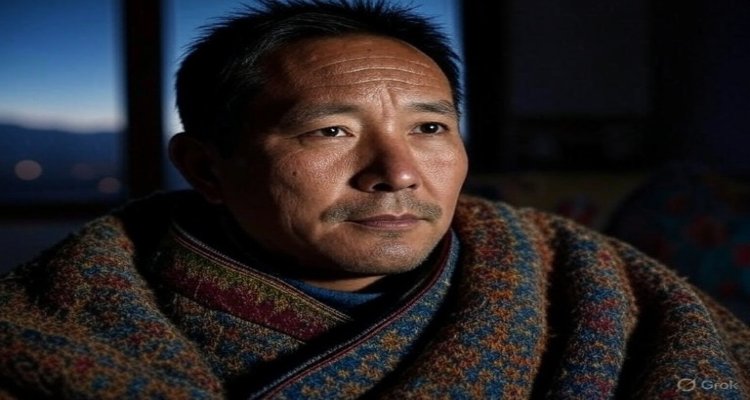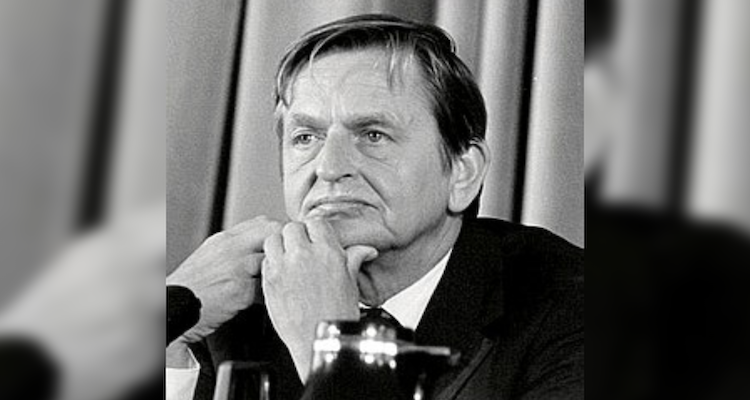Activist Sonam Wangchuk Detained Under NSA: What It Means for Ladakh’s Future

Climate activist Sonam Wangchuk’s detention under the National Security Act amid violent Ladakh protests raises questions about statehood, governance, and dissent.
Introduction: A Shock in the Mountains
On September 26, Ladakh’s most recognized climate activist and education reformer, Sonam Wangchuk, was detained under the National Security Act (NSA) and lodged in Jodhpur jail, Rajasthan. The move came just a day after violent protests demanding statehood and Sixth Schedule status for the union territory spiraled into chaos, leaving four protesters dead and nearly 90 injured.
For a man known worldwide for inventing the Ice Stupa and pioneering sustainable Himalayan education models, this detention marks a turning point—not just for Wangchuk, but for the fragile political and social climate in Ladakh.
Context & Background: Who Is Sonam Wangchuk?
Wangchuk, a mechanical engineer turned activist, has spent over three decades reshaping education and sustainability in Ladakh.
- In 1988, he founded the Students’ Educational and Cultural Movement of Ladakh (SECMOL) to reform government schools.
- Through Operation New Hope, he helped create village education committees, trained teachers, and introduced localized textbooks.
- At SECMOL, students and Wangchuk co-designed solar-heated, mud-based buildings that stay warm even in freezing winters.
- His invention of Ice Stupas—artificial glaciers storing winter water for spring irrigation—won international recognition as a solution to climate-induced water scarcity.
But Wangchuk’s activism has never been limited to classrooms or laboratories. Over the last year, he has increasingly voiced concerns about Ladakh’s political identity, ecology, and autonomy, especially after the abrogation of Article 370 in 2019, which stripped Jammu & Kashmir (and Ladakh) of statehood.
The Flashpoint: Protests That Turned Deadly
The immediate backdrop to Wangchuk’s detention was a hunger strike he began on September 10 in Leh. His demands, echoed by the Ladakh Apex Body (LAB), centered on four points:
- Statehood for Ladakh
- Inclusion under the Constitution’s Sixth Schedule (which provides tribal regions in Northeast India with autonomy in governance and finances)
- Separate Lok Sabha seats for Leh and Kargil
- Reservation in jobs and education
As days passed, the hunger strike intensified. On September 23, when two strikers’ health deteriorated and they were shifted to hospital, the LAB youth wing called for mass protests. By September 24, demonstrations turned violent, descending into arson, clashes, and bloodshed.
The following day, the Ministry of Home Affairs (MHA) cancelled SECMOL’s FCRA license, citing alleged irregularities including a foreign fund transfer from Sweden, which officials claimed was against “national interest.” Within 24 hours, Wangchuk was detained under the NSA.
The National Security Act: A Double-Edged Sword
The NSA, 1980, empowers governments to detain individuals preventively if their actions are deemed threats to:
- India’s defense and security
- Public order
- Essential supplies and services
The law allows detention for up to 12 months without trial, making it one of the most controversial legal tools in India’s governance framework.
Authorities allege that Wangchuk’s “provocative speeches,” where he referenced the Nepal agitation and the Arab Spring, incited unrest in Ladakh. The Lieutenant Governor-led administration insists the detention was necessary to prevent further escalation.
Public Reaction & Expert Insight
The arrest has drawn sharp reactions both within Ladakh and nationally.
- Supporters argue Wangchuk is a voice of ecological wisdom and democratic dissent. “Silencing someone who has given Ladakh hope through education and innovation will only deepen alienation,” said a Leh-based educator.
- Critics of the protests believe the violence justified firm state action. “Once protests cross into arson and deaths, the government has little choice but to step in,” noted a retired bureaucrat familiar with security law.
- Legal experts caution that preventive detention laws like the NSA are often misused. “The danger is in conflating peaceful activism with threats to national security,” said Delhi-based lawyer Shalini Narang.
Globally, Wangchuk has admirers across the climate activism community. Social media campaigns with hashtags like #FreeSonamWangchuk and #SaveLadakh have already begun trending.
The FCRA Angle: A Strategic Clampdown?
The cancellation of SECMOL’s FCRA (Foreign Contribution Regulation Act) license raises further questions.
The FCRA regulates how NGOs and individuals receive and use foreign donations. The government claims discrepancies in SECMOL’s accounts, particularly a fund transfer from Sweden. Critics, however, see the timing as politically motivated, arguing it seeks to weaken Ladakh’s civil society movements by cutting off their financial lifelines.
What’s at Stake for Ladakh?
At the heart of the turmoil lies Ladakh’s demand for autonomy. Since 2019, when it was carved out as a Union Territory without a legislature, Ladakhis have felt politically sidelined. The demand for Sixth Schedule protections reflects fears of losing land, jobs, and cultural identity to outside interests.
Wangchuk’s detention risks intensifying these concerns:
- For the region: Ladakh’s political future remains uncertain. Will the Centre open dialogue, or will security measures dominate?
- For civil society: NGOs in Ladakh may face tighter scrutiny, impacting education and climate projects.
- For India’s democracy: The case highlights a growing debate—where does legitimate dissent end and national security begin?
Conclusion: Between Ice and Fire
Sonam Wangchuk’s journey—from innovator of Ice Stupas to a prisoner under the NSA—captures the contradictions of modern India. A man who has dedicated his life to teaching sustainable survival in the Himalayas now finds himself accused of threatening national stability.
As Ladakh mourns its dead and braces for further unrest, the question remains: Will Wangchuk’s detention spark deeper dialogue, or will it freeze hopes for Ladakh’s political future?
Disclaimer:This article is based on available reports and official statements as of September 29, 2025. Developments may evolve, and readers are encouraged to follow credible news sources for updates.










